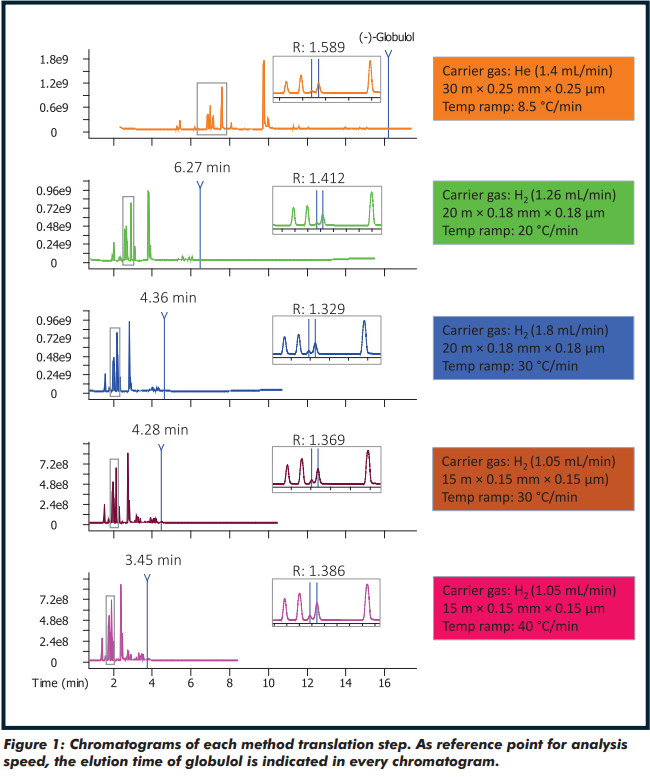Even the best-trained experts can only move as fast as their equipment will allow, and as helium prices increase and supplies drop, the fast spectral acquisition speeds of GC-TOFMS instruments stand ready to reap the benefits of fast GC separations afforded by utilizing hydrogen carrier gas.
While the advantages of helium as a carrier gas for mass spectrometers have long been known, it is a limited natural resource. On the other hand, hydrogen gas generators can be installed in any lab for a constant supply and, conveniently, increased chromatographic speeds.
Not every instrument is capable of benefiting from using hydrogen as a carrier gas. The reduced viscosity of hydrogen can cause issues with the vacuum pump, and the higher speeds can confuse a detector that can’t collect data fast enough to deconvolute and quantify the narrower peaks. However, LECO’s Pegasus® BT was designed to be able to use hydrogen instead of helium as a carrier gas.
With no mechanical issues when switching from helium to hydrogen, the next question is: What is the quality of the data produced?
LECO’s experts have been running samples through the Pegasus BT with both helium and hydrogen carrier gases and comparing the results. Our results have been extensively documented through on-demand webinars, poster presentations, and application notes from our Fast GC Forum. In a recent app note, LECO tested tea tree oil.
The quality of essential oils such as tea tree oil can be impacted by various processing or storage conditions, and it can degrade or change over time. Fast and reliable analytical screening is therefore critical for quality control of these products. A typical analysis of tea tree oil using a Pegasus BT and helium carrier gas can take around 16 minutes, with fantastic chromatographic resolution. By switching the carrier gas and optimizing the method for hydrogen using an online method translator, that time dropped to 3.45 minutes.

With transferring to hydrogen, it was possible to dramatically increase throughput without significantly impacting resolution. Mass spectral fragmentation was highly similar to that obtained with helium, while the overall sensitivity actually increased by about 40%.
Learn more about this comparison of helium and hydrogen methods for tea tree oil analysis.





